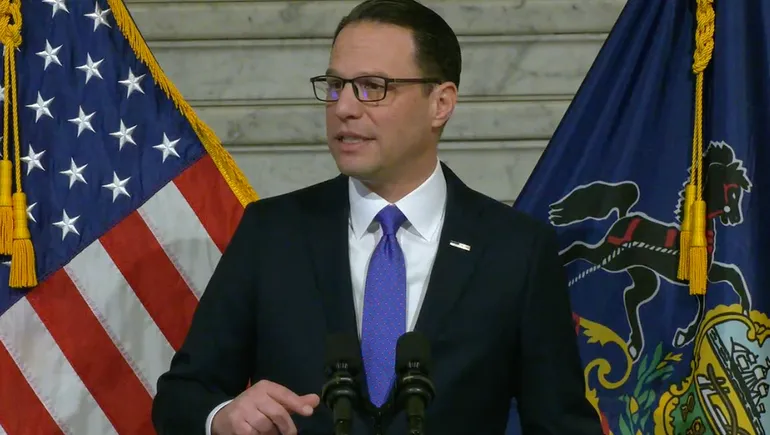Dive Brief:
- Pennsylvania Gov. Josh Shapiro on Tuesday unveiled a 2024-25 state budget proposal that would sharply boost higher education funding, consolidate public college governance and cap tuition costs for certain students.
- The Democrat governor’s plan would allocate $975 million to the state’s public university system — the Pennsylvania State System of Higher Education, or PASSHE — and its community colleges, up 15% from around $850 million last year. The increased funding is meant to support the creation of a new public postsecondary governance system that would bring together the PASSHE institutions and the state’s 15 community colleges.
- Shapiro is also seeking to increase funding to Pennsylvania’s state-related universities by 5%. The change would affect institutions like Pennsylvania State, Temple and Lincoln universities, which largely operate independently but receive state money.
Dive Insight:
The increased funding is key to Shapiro’s plan to overhaul Pennsylvania’s higher education system as institutions grapple with diminishing student bodies and the state sees overall population declines.
PASSHE experienced a 30% drop in enrollment over the past decade, Shapiro said Tuesday. Today, the system has about 83,000 students. The state’s community colleges saw a 37% decline over the same period, and now have roughly 245,000 students.
PASSHE has sought to course correct by combining six of its institutions into two, resulting in the creation of Pennsylvania Western University and Commonwealth University of Pennsylvania in 2022. Nonetheless, enrollment declines continued, though the system touted an uptick in first-year students in fall 2023.
“The faculty, staff, and administrators at these schools are working really hard, but they’ve been dealt a lousy hand,” Shapiro said.
The governor, in part, blamed state disinvestment for residents’ lack of access to higher education. He said his proposal to increase Pennsylvania’s university system and community college funding to almost $1 billion would take it from 49th in state investment in higher education to 22nd over five years.
Shapiro’s plan intends to prevent program duplication among institutions. Unlike many states, Pennsylvania does not have a statewide governing board for higher education.
“This new system will preserve local leadership while ensuring we’re all rowing in the same direction,” he said.
The proposed merger has received support from PASSHE Chancellor Dan Greenstein, who said it would give students more pathways to a degree or credential.
Shapiro addressed college affordability when speaking to the Legislature Tuesday. If approved, the budget would cap tuition at $1,000 a semester for families making less than $70,000 a year. Shapiro said he would ask lawmakers next year for $279 million in additional funding to offset students’ costs.
The budget would also increase the value of the state’s higher education grants by $1,000. The maximum for the 2023-24 academic year is $5,750.
Shapiro also pitched a performance-based funding model for Pennsylvania’s publicly funded colleges. Neeli Bendapudi, president of Penn State, voiced support for such a standard this week.
It’s unclear how the governor’s proposal will fare in the Legislature. Pennsylvania is the only state in which different parties control the House and the Senate.
In the same speech, Shapiro highlighted his decision last year to remove four-year degree requirements from most state government positions. Now, nearly 60% of the state’s new hires don’t have a college degree, he said.
